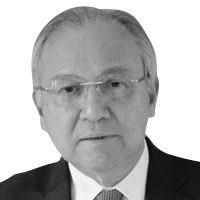Right wing nationalist leaders

The recent election of Jair Bolsonaro as the next president of Brazil indicates a global trend where the electorate are more and more inclined to choose right wing nationalist candidates sometimes described as “disruptors of politics as usual.”
Who is Jair Bolsonaro, and why has his rhetoric – criticized by opponents as offensive, divisive and politically incorrect – resonated among Brazilian voters?
Of German and Italian descent, the 63-year-old former Army captain went to Academia Militar das Agulhas Negras, a military school that is Brazil’s equivalent to West Point. He first drew attention in 1986 when he wrote an article in a magazine criticizing the low salaries of military officials – resulting in his arrest and detention but earning the support of the members of the army. After his acquittal two years later, he ran for councilor in Rio de Janeiro and was subsequently elected as congressman in 1990, staying in office for 27 years.
He announced his bid for the presidency in 2016, but no one really took him seriously. Some even dismissed his candidacy as a joke – because he did not have a giant political machinery nor a massive war chest. He was described as nothing more than a “rabble rouser” for his fiery, earthy language.
That is, until a few months ago when his numbers started rising, capitalizing on the power of social media to directly communicate with the voters and send his simple message across the country: He will fight corruption; he will make the country safer and better by being tough against criminality; he will rescue Brazil and make it great again. The public enthusiastically responded, seen in the outpouring of financial support that gave Bolsonaro the distinction of being the first presidential candidate to raise more than one million Brazilian reals during the 2018 campaign period, with an average of R$17,000 a day in public donations during the first two months of the campaign.
A turning point came on September 6 during a campaign rally when Bolsonaro – riding atop the shoulders of a supporter – was stabbed on the abdomen and barely made it in time to a hospital. Although unable to continue on the campaign trail after the serious stabbing incident, his tweets kept him connected to supporters, writing, “We want to rescue our long-lost values and get Brazil out of this swamp of violence and corruption they have put us in! Our country can’t take another four years [of this].”
“…To the thugs who tried to ruin the life of a family man, a guy who is the hope of millions of Brazilians – you just elected him president,” said Bolsonaro’s son Flavio, whose words turned prophetic – because the stabbing further elevated his father’s stature to that of hero and martyr.
Bolsonaro’s ascent to the presidency had its beginnings in 2016 – at about the time when he first indicated his desire to run for the highest position – when then Brazilian president Dilma Rousseff was impeached and eventually removed from office due to a massive corruption scandal that implicated her political party.
Known as “Operation Car Wash” because dirty money was funneled through small businesses like gasoline stations and car washes, what began as an investigation into money laundering unveiled a web of systemic corruption involving Brazil’s state-controlled oil company Petrobras. Apparently, the oil firm was overpaying on contracts with various companies, guaranteeing excessive deals from suppliers with as much as five percent of the contracts being funneled into secret slush funds that deprived the government and the people of billions of taxes, but benefited unscrupulous businessmen as well as corrupt politicians since the primary goal was to generate campaign funds to keep the governing political party in power.
Bolsonaro came across as a maverick outsider promising to “break the system” with his campaign slogan “Brazil before everything, and God above all” stoking a nationalist fervor among the people who were feeling angry, frustrated and disillusioned following a deep recession in the aftermath of the corruption scandal that rocked Brazil. His stance against criminality – saying on Twitter that “We need to be really tough on crime to make criminals understand that they won’t enjoy impunity,” was welcomed by voters who saw him as a strong candidate who could reduce the high level of street crimes that was plaguing Brazil.
The “que horror” and “que barbaridad” crowd cringed at Bolsonaro’s unpolished language – vulgar, as many describe it – but supporters took his straightforward speeches as a mark of genuineness and authenticity. To the Brazilians, it matters less that their president-elect displays authoritarian tendencies because they see him as a strong leader who could set the country’s ills right. One could even describe Bolsonaro as a come-from-behind, untypical candidate – which is exactly why he has captured the imagination of the voters who saw in him a refreshing change from the status quo and the traditional politicians who, for the last 30 years in Brazil, had forgotten the ordinary people.
In his acceptance speech, Bolsonaro vowed to change the direction the country was taking, saying, “We cannot continue flirting with socialism, communism, populism and leftist extremism... We are going to change the destiny of Brazil.”
Inevitably, comparisons are being made with US president Donald Trump and Philippine president Rodrigo Duterte, out-of-the-box candidates whose tough “what you see is what you get” personalities struck a chord among the people who wanted change.
Similar to the US and the Philippines, many entrenched “name brand” elitist Brazilian politicians were dismayed with Bolsonaro’s victory. But when all is said and done – they have no choice but to respect the will of the people.
* * *
Email: [email protected]
- Latest
- Trending























